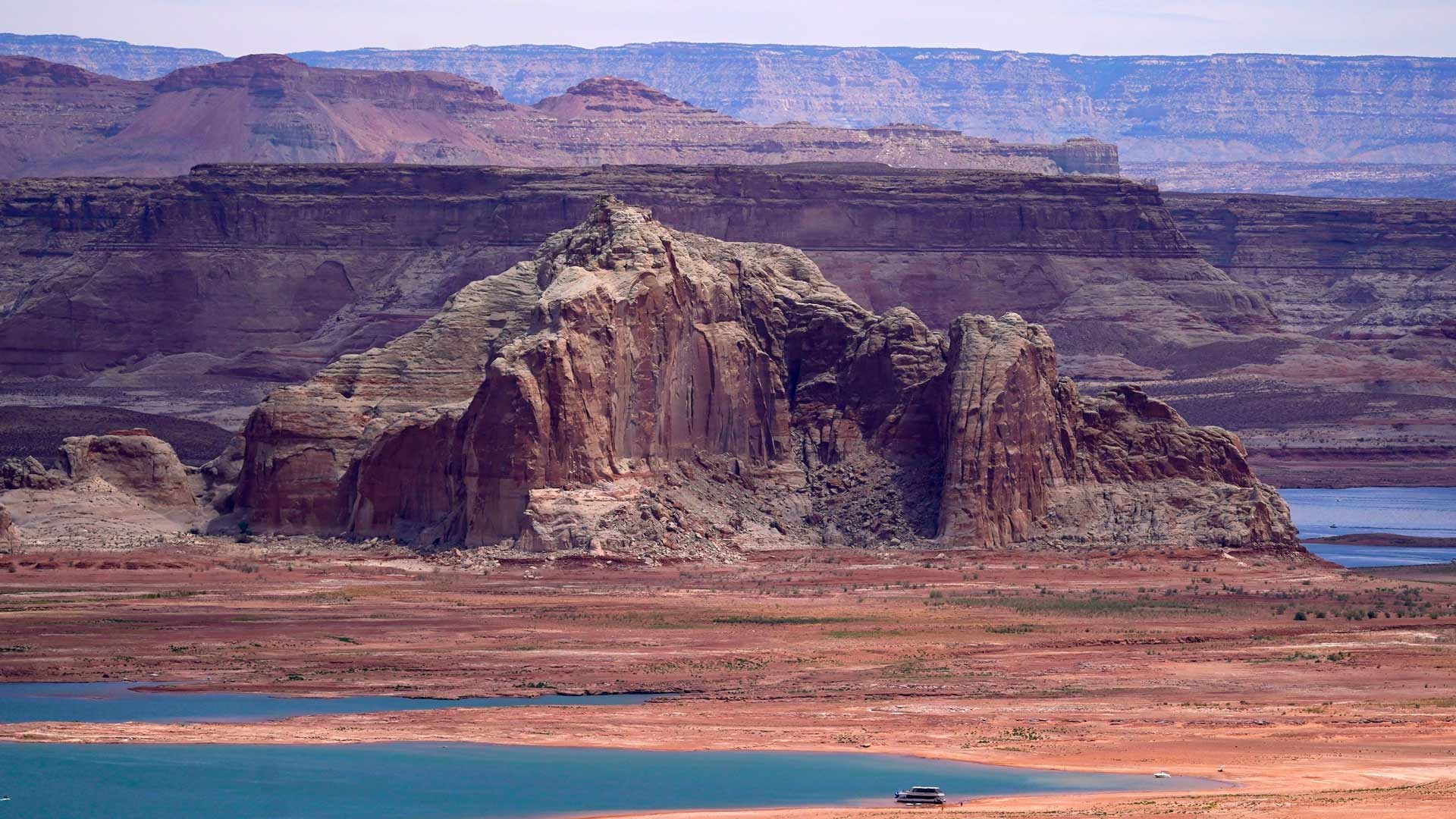 Low water levels at Wahweap Bay at Lake Powell along the Upper Colorado River Basin are shown, on June 9, 2021, at the Utah and Arizona border at Wahweap, Ariz.
Low water levels at Wahweap Bay at Lake Powell along the Upper Colorado River Basin are shown, on June 9, 2021, at the Utah and Arizona border at Wahweap, Ariz.
Fifteen Native American tribes will get a total of $580 million in federal money this year for water rights settlements, the Biden administration announced Thursday.
The money will help carry out the agreements that define the tribes' rights to water from rivers and other sources and pay for pipelines, pumping stations, and canals that deliver it to reservations.
“Water rights are crucial to ensuring the health, safety, and empowerment of Tribal communities,” U.S. Interior Secretary Deb Haaland said in a statement Thursday that acknowledged the decades many tribes have waited for the funding.
Access to reliable, clean water and basic sanitation facilities on tribal lands remains a challenge across many Native American reservations.
The U.S. Supreme Court ruled in 1908 that tribes have rights to as much water as they need to establish a permanent homeland, and those rights stretch back at least as long as any given reservation has existed. As a result, tribal water rights often are senior to others' in the West, where competition over the dwindling resource is often fierce.
But in many cases, details about those water rights were not specified and have had to be determined in the modern era.
Many tribes opted for settlements because litigation over water can be expensive and drawn out, with negotiations involving states, cities, private water users, local water districts, and others that can take years, if not decades.
Of the funding announced Thursday, $460 million comes from the $2.5 billion set aside for Native American water rights settlements in the Biden administration's infrastructure bill. A federal fund created by Congress in 2009 to pay for water rights settlements will contribute the other $120 million.
About $157 million will go to the Confederated Salish and Kootenai Tribes in Montana. The federal government signed the tribes' water rights compact in 2021 and promised over the following decade to fund the rebuilding of an irrigation project on the Flathead Indian Reservation constructed in the 1900s. Interior said Thursday's funding was part of the $1.9 billion trust created when Haaland signed the tribes' compact.
Tribal Council Chairman Tom McDonald said passage of the compact came “after work that stretches back 40 years.”
The Navajo Nation, which spans parts of Arizona, Utah, and New Mexico, will receive $137 million for an ongoing project to bring drinking water to members in northwestern New Mexico and the city of Gallup.
The project, expected to be completed in 2027, is a network of pipelines and pumping stations that will deliver treated water from the San Juan River, which flows through the deserts of northwestern New Mexico.
About $39 million is headed to the Navajo Nation for a separate settlement that will fund drinking water infrastructure in San Juan County, a part of the 27,000-square-mile (71,000-square kilometer) reservation that is in Utah.
Navajo Nation President Buu Nygren, in a statement, called water the tribe's “most critical resource" and said it was "time to move forward” with both infrastructure projects.
The Gila River Indian Community in Arizona will get $79 million this year, which the tribe's Gov. Stephen Lewis said would help its water conservation efforts amid stubborn drought in the West. The funding will help finish construction of an irrigation system on the reservation.
Lewis said the funding was also a nod to the “role that tribal governments ... play in being good stewards for our water and other natural resources.”
Elsewhere, the Blackfeet Nation in Montana will receive $45 million for a settlement that was signed into law by President Barack Obama in 2016 and called for improvements to irrigation systems and the development of a community water system.
The Crow Nation, San Carlos Apache Nation, Southern Ute Indian Tribe, Ak-Chin Indian Community and Pueblos of San Ildefonso, Nambe, Pojoaque, and Tesuque are among other tribes sharing in the money announced Thursday.

By submitting your comments, you hereby give AZPM the right to post your comments and potentially use them in any other form of media operated by this institution.